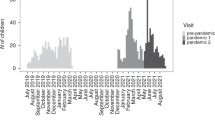Abstract
Chronobiologists argue that their scientific findings have implications for prevention of sleep problems. They claim that some sleep problems are caused by the fact that people live against their individual body clock rather than adjusted to it. They also claim that by taking the findings of chronobiology seriously in policy-making some sleep problems can be prevented. I investigate applications of chronobiology in two social areas—school schedules and shift work—and show that in order for these applications to be justified certain implicit presumptions have to be justified. The first presumption is explanatory, namely that a chronobiological explanation is an adequate explanation of the sleep problems at hand. In addition I analyse three ethical presumptions. The first ethical presumption is that sleep is of vital value. The second is that sleep is not an exclusively private issue. The third ethical presumption is that the preventive measures to be undertaken are ethically acceptable. My main point is that it is not possible to simply “read off” policy measures from the empirical findings of chronobiology.
Similar content being viewed by others
References
Åkerstedt, T. 2003. Shift work and disturbed sleep/wakefulness. Occupational Medicine 53(2): 89–94.
Basner, M., A.M. Spaeth, and D.F. Dinges. 2014. Sociodemographic characteristics and waking activities and their role in the timing and duration of sleep. Sleep 37: 1889–1906.
Brownson, R.C., J.F. Chriqui, and K.A. Stamatakis. 2009. Understanding evidence-based public health policy. American Journal of Public Health 99(9): 1576–1583.
Carskadon, M.A. (ed.). 2002. Adolescent sleep patterns: biological, social, and psychological influences. New York: Cambridge University Press.
Costa, G. 2003. Shift work and occupational medicine: an overview. Occupational Medicine 53: 83–88.
Crowley, S.J., C. Acebo, and M.A. Carskadon. 2007. Sleep, circadian rhythms, and delayed phase in adolescence. Sleep Medicine 8: 602–612.
Czeisler, C.A., et al. 1986. Bright light resets the human circadian pacemaker independent of the timing of the sleep-wake cycle. Science 233: 667–671.
Danner, F., and B. Philips. 2008. Adolescent sleep, school start times, and teen motor vechicle crashes. Journal of Clinical Sleep Medicine 4: 533–535.
De Vreese, L., E. Weber, and J. Van Bouwel. 2010. Explanatory pluralism in the medical sciences: Theory and practice. Theoretical Medicine and Bioethics 31: 371–390.
Ekirch, A.E. 2001. Sleep we have lost: Pre-industrial slumber in the British Isles. The American Historical Review 106(2): 343–387.
Folkard, S., D.A. Lombardi, and P.T. Tucker. 2005. Shift work: Safety, sleepiness and sleep. Industrial Health 43: 22.
Hunter, D.J. 2003. Evidence-based policy and practice: riding for a fall? Journal of the Royal Society of Medicine 96: 194–196.
Härmä, M. 1995. Sleepiness and shiftwork: individual differences. Journal of Sleep Research 4(Suppl. 2): 57–61.
Juda, M., C. Vetter, and T. Roenneberg. 2013. Chronotype modulates sleep duration, sleep quality, and social jet lag in shift-workers. Journal of Biological Rhythms 28(2): 141–151.
Kronfeldner, M.E. 2009. Genetic determinism and the innate–acquired distinction in medicine. Medicine Studies 1: 167–181.
Nordgren, A. 2011. Prenatal genetic counselling: Reflections on drawing policy conclusions from empirical findings. In Ethical dilemmas in prenatal diagnosis, ed. T. Fischmann, and E. Hildt, 109–120. Dordrecht: Springer.
Oliver, K., T. Lorenc, and S. Innvær. 2014. New directions in evidence-based policy research: A critical analysis of the literature. Health Research Policy and Systems 12: 34. doi:10.1186/1478-4505-12-34.
Randler, C., and D. Frech. 2006. Correlation between morningness-eveningness and final school leaving exams. Biological Rhythm Research 37: 233–239.
Roenneberg, T. 2012. Internal time: Chronotypes, social jet lag, and why you’re so tired. Boston: Harvard University Press.
Roenneberg, T., et al. 2012. Social jetlag and obesity. Current Biology 22: 939–943.
Schwartz, J.R.L., and T. Roth. 2006. Shift work sleep disorder. Burden of illness and approaches to management. Drugs 66: 2357–2370.
Stearns, P.N., R. Perrin, and L. Glarnella. 1996. Children’s sleep: sketching historical change. Journal of Social History 30: 345–366.
Sutherland, W.J., and M.A. Burgman. 2015. Use experts wisely. Nature 526: 317–318.
United Nations. 1948. Universal declaration on human rights. www.un.org/en/documents/udhr/. Accessed 14 Dec 2015.
Van den Bulck, J. 2004. Television viewing, computer game playing, and internet use and self-reported time to bed and time out of bed in secondary-school children. Sleep 27(1): 101–104.
Van der Vinne, V., G. Zerbini, A. Siersema, A. Pieper, M. Merrow, R.A. Hut, T. Roenneberg, and T. Kantermann. 2015. Timing of examinations affects school performance differently in early and late chronotypes. Journal of Biological Rhythms 30(1): 53–60.
Vetter, C., D. Fischer, J.L. Matera, and T. Roenneberg. 2015. Aligning work and circadian time in shift workers improves sleep and reduces circadian disruption. Current Biology 25: 907–911.
von Winterfeldt, D. 2013. Bridging the gap between science and decision making. Proceedings of the National Academy of Sciences of the United States of America 110(suppl. 3): 14055–14061.
Williams, S.J. 2005. Sleep and society. London and New York: Routledge.
Williams, S.J. 2011. The politics of sleep. New York: Palgrave.
Worthman, C.M., and M.K. Melby. 2002. Toward a comparative developmental ecology of human sleep. In Adolescent sleep patterns: biological, social, and psychological influences, ed. M.A. Carskadon, 69–117. New York: Cambridge University Press.
Author information
Authors and Affiliations
Corresponding author
Rights and permissions
About this article
Cite this article
Nordgren, A. Genes, body clocks and prevention of sleep problems. Med Health Care and Philos 19, 569–579 (2016). https://doi.org/10.1007/s11019-016-9701-x
Published:
Issue Date:
DOI: https://doi.org/10.1007/s11019-016-9701-x



